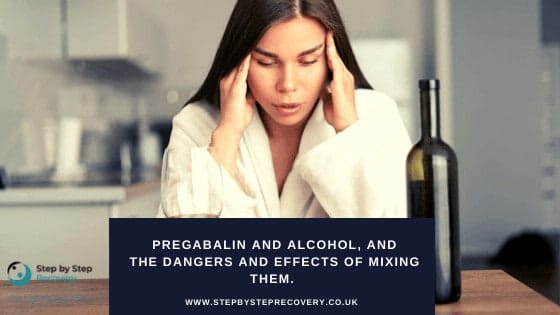Updated April 2023
If you are struggling with an addiction to drugs or alcohol, you may well have seen and considered undergoing a rapid detox. These are generally three to 10 days long and may seem like an immediate and more affordable way to stop using drugs or alcohol.
Residential rehab can feel, timewise and financially, like a huge commitment, and it is obvious why a rapid detox might seem like a better option. But there are various things to consider about both types of addiction treatment. Read on to find out how a rapid detox works and how to decide if it is right for you.
Rapid Detox Success Rate
Often, rapid drug detoxes are advertised as having a very high success rate. We are not disputing that they do – in terms of cleaning out your system, with the assistance of some heavy-duty medications to ease the pain and dangers of drugs or alcohol withdrawal.
So, that’s a good thing, right? Yes, of course it is. As one of the UK’s premier drug and alcohol addiction treatment centres, we would always agree.
However, the reality and fast completion rate of a rapid detox – and here’s the ugly truth — means they do not factor in the long-term picture of staying clean, with many addicts relapsing almost immediately. We see and hear this often from people looking for help after attending such detoxes at other clinics.
If “success” in overcoming drug addiction is based on long-term outcomes, the demand for rapid drug detoxes would differ greatly. We would argue that the demand would be almost non-existent — except for people who can afford to have addiction treatment therapy every day and someone to stay with them for at least 28 days following a rapid detox.
Cost of Rapid Detox vs Residential Rehab
Rapid detox costs are often more affordable than addiction treatment at a residential rehab. However, you can pay a fraction of the money but at what cost?
Over and over again, we hear from our clients who have attended a rapid detox and managed to get clean for a month or two, only to relapse. Consequently, they end up being worse off as they have spent money on a treatment that hasn’t worked.
If you are considering a rapid detox, we urge you to find a clinic that can provide you with therapy every day for at least four weeks following your detox.
When looking for a detox clinic, please ensure that:
- They are Care Quality Commission (CQC) registered and a regulated drug detox clinic.
- The detox is monitored 24/7 by qualified nursing and medically trained staff.
- Medications are prescribed by a qualified doctor or preferably a consultant psychiatrist.
- The clinic offers a full aftercare rehabilitation programme in conjunction with and directly following the rapid detox.
- The clinic is experienced in treating those that are taking medications for health conditions and also mental health illnesses.
- There are no hidden costs.
Why a Rapid Detox Is Not the Solution to Drug and Alcohol Addiction
If you are physically dependent on alcohol or drugs, it’s important to realise that addiction is far more complex than just managing physical withdrawal symptoms while you get clean.
Addiction is medically recognised as a chronic and progressive disease of the brain by medical institutions around the world, including the World Health Organisation (WHO), Public Health England (PHE) and the National Institution on Drug Abuse (NIDA).
This is why effectively treating drug or alcohol addiction for long-term sobriety requires so much more than just safely removing the substance from your system.
The long-term outcome of a rapid detox, without any further help, is very poor. Some will even relapse the same day they leave the clinic. Very few – if any – will achieve a year or more of complete abstinence from drugs and alcohol. All a rapid detox essentially achieves is a reset button on the body. So here’s the issue; and what leads to relapse following a detox, your brain does not repair itself in such a short time. Without therapy to help you find healthy ways to cope with triggers that would have resulted in previous substance abuse, it is almost inevitable that this is why you will relapse after a short period of sobriety.
Addiction changes the structure and function of the brain’s frontal lobes, which control impulse and motivation. These changes create a compulsion to continue to use drugs and drink alcohol, despite the mounting negative consequences. Even once your system is clean following a prescribed medical detox, the compulsion to use remains. This is because the brain remains unchanged even when your body is clean.
Over time and with total abstinence, the brain will repair itself to an extent, depending on the damage done. However, certain thought processes, beliefs and unmanageable emotions will remain. These beliefs and thought processes lead to you relapsing when you don’t receive any psychological support during addiction treatment.
Why Residential Rehab is the Most Successful Way to Treat Addiction
To fully recover from drug or alcohol addiction, a profound change in thinking is essential. Achieving long-term abstinence and a happy and productive life is possible, but it is unlikely to result from a rapid detox. During your treatment at a residential rehab facility, a range of evidence-based addiction treatment methods are used to treat the psychological component of addiction (the main driving force of the illness).
While you might be able to access psychological therapy after attending a rapid detox, if you can also access drugs or alcohol, it may not be enough. The fact that the detox is completed quickly means that your brain has even less time to adjust to being drug-free. And with no alternative healthy coping strategies, the likelihood of suffering a relapse is very high.
A stay at a residential rehab facility typically begins with an assessment and a medically assisted detox. This will be similar to a medically assisted detox you might receive at a rapid detox clinic. What makes this part of your addiction treatment a success is the intense psychological therapy you have access to after. Other key factors contributing to the success of residential rehab are the inability to access drugs or alcohol and the opportunity to focus entirely on your recovery without the usual triggers and stress of daily life.
At our residential rehab centre in Essex, we regularly treat people who have undergone a rapid detox and have consequently relapsed. What they thought at the time was saving time and money ended up costing them far more. In addition to having no long-term benefit, they almost always come to us in a worse state than ever, due to the progressive nature of addiction.
During residential rehab at Step by Step Recovery, we will provide you with everything required to help you to train clean for life. Following a comprehensive assessment by our Consultant Psychiatrist, and a full medically assisted detox supervised 24/7 by medically trained staff, you will attend an individualised rehabilitation programme. We know everyone is unique, so we don’t have a standardised treatment programme.
All of our addiction treatments are personalised and specific. A multidisciplinary team of professional counsellors and therapists delivers them. Most of these people are in recovery from addiction themselves. Our addiction treatment programmes are designed to support you in bringing about the essential changes required for long-term recovery. We can help you live a life free from addiction, regardless of whether you have received a rapid detox or addiction treatment before.
At Step by Step Recovery, we offer free advice on supporting and treating addiction. For more information about addiction treatment options, please complete our online assessment form or call our understanding team on 0800 170 1222 for free, confidential advice to help you or a loved one.
Page revised in March 2023, by Danielle Byatt, a Level 4 addictions counselling, Level 5 in Leadership & Management, BA applied social work. and Treatment Director at Step by Step Recovery.




